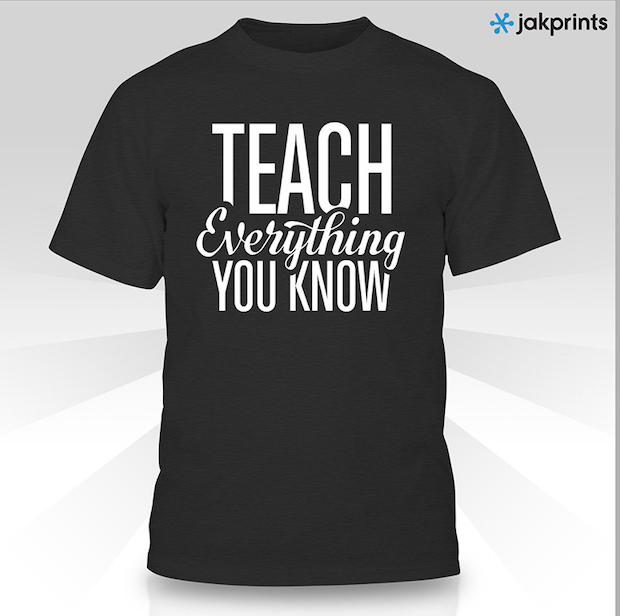I don’t write for you, dear reader
John was an 18 year old who had recently gotten his real estate license. It was cheaper than a college degree, and he figured he’d give it a shot. The worst that could happen is that he’d be bad at selling houses and, after 6 months or so, he could reevaluate his plan an go a different direction if it wasn’t working out.
Much to the surprise of his family and friends, John actually sold 8 houses in his first 6 months. He figured he must have a gift, effortlessly making deals and cashing checks.
After his 10th sold house, John decided he must share his secret formula with the world. After all, he had achieved instant success, success that absolutely must be a result of his intuitive greatness. And now, John believes that anyone is capable of this success, if they follow his step-by-step program, for the low low cost of only $397.
The only problem: it was 2007.
John didn’t really know what he was doing. He was selling houses in the hottest housing market in recent history, and the crash was coming. Soon, he’d be selling sand in the desert, and the “expertise” of an 18 year old just wouldn’t be nearly as attractive as before.
Beware the “eager teacher”
I’ve seen the parable above play out 20 different ways in the last 10 years, especially online where the barrier to establishing a training site is as low as ever.
It’s usually entrepreneurial types, fresh off their first month of profitability, who now think they’re a guru.
(OK, maybe I’m exaggerating a little, but not THAT much.)
I’m wary of these types, but more importantly, I’m wary of becoming these types.
“Teach everything you know”
When I decided to start blogging again, I needed a home for my email list that I had built up years ago. After considering quite a few, ConvertKit stood out as the best choice for what I wanted to do.
After signing up, they did something I honestly didn’t expect: they wanted to send me a t-shirt, free. This one, to be exact:

It’s a noble sentiment, I think. My experience is unique, and if I keep what I’ve learned in my own head, that’s where it will remain.
But I don’t want to be like John, and hubris often masquerades as virtuous altruism.
So how am I supposed to prevent that? I am, after all, a human being with all the same weaknesses and tendencies to appease my ego.
“What worked for me”
“Teach everything you know” has an alarmingly conceited tone to it. We don’t really “know” very much. We think we do, and we probably do know some things, but it’s hard us to accurately tell the difference between what we know and what we think we know.
I don’t know that you should wake up at 5am every day.
I don’t know that asking yourself 2 simple questions will help you prioritize your goals.
I don’t know that you’ll have success in asking your boss what the expectations are for your role.
But they worked for me. And maybe they’ll work for you.
This site isn’t scripture. It’s a lookbook … a collection of ideas that may or may not work in your specific context.
And to the extent that a blog post helps someone achieve something that they couldn’t before, I can be proud of it.
But that’s still not the reason I write.
I write to be a better writer
Consistently producing content … vetting it against objective reality and my own experiences, editing, optimizing, publishing … is a moderately difficult task. I try to publish once per week, and that’s enough to both stretch me and keep me comfortably within the boundaries of achievability.
It’s an exercise in discipline. Consuming is much easier, and even though producing/building something does have a much more profound payoff, there is a delay between when you build the thing and when it actually feels good to have built the thing.
Part of my journey is to continually develop and strengthen my resolve to ignore cheap thrills and focus on more meaningful activities.
So I write. Not because I’m good at it, but because I’m not.
I write to get better at writing, and to develop the muscles needed to produce rather than consume.
I write to learn
More than anything else, the process of writing forces me to study the subject enough to be able to effectively communicate the lesson to myself, both now and in the future.
Your mind is for having ideas, not holding them.
David Allen, author of Getting Things Done
By writing, I get the double benefit of both having learned something deeply enough to write a coherent post about it, as well as having produced a reference piece, a letter to my future self, to remind me of “what worked before”.
And sure, maybe I’ll change my mind or have a better idea later. But so what? At least I’ll have a record of the change, and the path that lead to growth.
Who knows? Maybe one day I’ll write because I’ve developed into a good writer, or because I have some timeless wisdom to pass along to the world.
Until then, I’m not saying I don’t love you, dear reader … but I write for me.